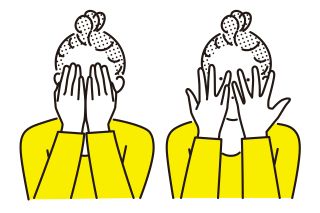Family Dynamics
Donor-Conceived People: Curiously not Curious
Some insist that they are not at all curious about their donor origins.
Posted May 8, 2023 Reviewed by Kaja Perina
Key points
- Many donor-conceived people are curious about their close genetic donor relatives, ancestry, and family medical history.
- Some are ambivalent or insist that they are not at all interested in learning about their donor origins or their donor relatives.
- This ambiguity or outright disinterest can be rooted in fear, shame, worry, or concern.
- How one defines family plays a big part in curiosity levels.

People conceived with donor sperm, egg, or embryo have been cut off from knowing their close genetic donor relatives and from having access to their ancestry and family medical history. While many families connect on the Donor Sibling Registry when children are young, sperm banks and most infertility clinics mandate at least 18 years of anonymity for the donors.
We often hear stories of donor conceived-people (DCP) searching for and finding their donor relatives. The Donor Sibling Registry has 85,500 members, with more than 24,000 of them having made connections with half-siblings and/or donors. Many more have also connected by submitting their DNA to commercial DNA websites and via private searches. Sometimes though, donor-conceived people are ambivalent or insist that they are not at all curious about or interested in meeting their half-siblings and/or their other biological parent (the donor) or learning about their ancestry or family medical history. Although this is certainly true for some, this ambiguity or outright disinterest may be rooted in:
- Feeling confused about how they might define relationships with genetic relatives who are also strangers.
- Feeling ashamed or embarrassed about the way that they were conceived, and not wanting to acknowledge or think about it.
- A belief that the donor wishes to be anonymous, even though anonymity is mandated by the sperm banks and egg facilities. Many donors never wanted to be anonymous or have had a change of heart and are happy to be found.
- Worrying that their parent(s) may be hurt or disappointed by any curiosity. This is especially true in families where talking about donors or half-siblings has not been encouraged, or when minimizing their contribution or importance occurs.
- Having parents who have communicated that any curiosity about donor relatives is an indication that they haven't been perfect or good enough parents.
- A feeling that any curiosity will be perceived as a betrayal of sorts to the parents who are raising them, particularly to the non-bio parent, even if their parent(s) are deceased.
- Worried that others will think their curiosity is rooted in unhappiness with their family.
- Parents who have minimized/negated/dismissed the importance or significance of the child’s unknown biological family. Sometimes, parents give a clear message, (both with words and silence) that the donor or half-siblings would not be a welcomed addition to their lives or into the family circle.
- Concern that the sibling(s) they’ve grown up with won’t approve of newly-found genetic relatives.
- Worry that friends, family, spouses, partners, or others will be judgmental — e.g., “Those people are not your family," "DNA doesn't make a family" or "Why open that can of worms?"
- Feeling rejection/abandonment after an attempted connection or even after a connection has been made. This rejection is usually an indication of the limitations of the person rejecting, and not having anything to do with the person being rejected.
- Fear of not being good enough or not having accomplished enough.
- Feeling overwhelmed at the possibility of finding 10, 50, 100, or even more than 200 half-siblings and having to figure out how to foster/manage those new relationships with an already busy school/work/home life and schedule.
- Worry about not having the emotional bandwidth or mental stability, or just not being at the “right place” in life to deal with a meeting, or with incorporating new relatives into their lives, especially if there are many of them. This may be rooted in general anxiety when meeting new people.
- Worry that they won't like or will be disappointed with their new relatives, or that they won’t have enough in common.
- Fear of learning that the biological parent who contributed 50% of their DNA will be flawed in some way, which might then impact their own sense of personal identity.
- Fear that meeting genetic relatives will somehow take away from their current family relationships, family system, and family stability.
- Fear of learning about genetic health issues.
Quite often it boils down to how people are taught to define family. When children are told, "Those people are not your family," how do they move forward with their own perception of what family means to them? When parents deliberately don't ever talk about the fact that their kids are donor-conceived, (eg., casually noting different physical attributes, gifts, strengths, hobbies, or interests that might come from the donor side of the family) they can be giving their kids a clear message that this is not a welcomed exploration, acknowledgment, or conversation.
Are parents willing to evolve, examine their own fears or insecurities, and even redefine what family means with their donor-conceived children? Sometimes, parents insist that their kids are not at all curious, and then those same adult offspring are seen posting on the Donor Sibling Registry, noting that their parents would be mad or hurt if they knew about their desire to meet their donor family. Donor-conceived people who understand that they are a unique and wonderful blend of both nature and nurture can acknowledge all of the parents, both biological and non-biological, without having to minimize any of their contributions.
Curiosity can ebb and flow over a DCP's lifetime, and families can make space for them to have different levels of curiosity at different times. Sometimes, DCP don't feel curious until they hit adolescence and are defining who they'll become as adults. Sometimes curiosity hits hard when DCP start having children of their own. And, sometimes it wanes when life gets busy with other things and attention needs to be somewhere else.
Feigning disinterest can be a good way to protect oneself and others from disappointment and from the unknown. Some DCP claim to have no interest only after learning that the donor wishes to remain private. It's a response that protects them from feeling rejected. When a donor refuses contact that doesn't mean there isn't hope for the future. Some donors need time to process the fact that they have a few or many donor children. Other donors may need to work with or respect family members who are not so willing to meet donor relatives. Unfortunately, sometimes a donor's partner or spouse can put the kibosh on any potential relationships between donor-conceived people and their biological parents.
These common worries, fears, and hesitations about an unknown genetic family can be acknowledged and processed so that it isn't necessary to cut one's self off from exploring an expanding-family experience.
If we know where we came from, we may better know where to go. If we know who we came from, we may better understand who we are. - Anonymous


